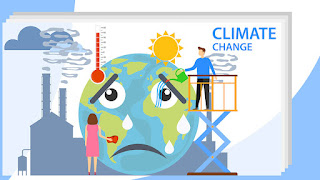- War: If a Western country is involved in a war (or an ally - as in the case of Saudi Arabia in Yemen) then they are routinely assigned the entire responsibility for that war, including for all the terrible things done by those they are fighting.
- Illiberalism: Government oppression of religious and sexual minorities, political opposition, free press, and so on is routinely attributed to 'colonial era laws' or continuing Western ideological influence.
- Misgovernance: Government dysfunction and corruption are routinely blamed on Western consumers/companies' demand for natural resources; terrible environmental and labour regulations (or enforcement) are likewise blamed on Western demand for cheaper products
Wednesday, 13 July 2022
Taking Decolonization Seriously Means Recognising the Moral Agency of Non-Western Political Actors
In the context of the current decolonisation movement it is rather strange that whenever bad things happen in a non-Western country they are still routinely analysed as the moral responsibility of actors in the West - (former) governments, companies, ideologues, consumers, etc. For example,
This way of looking at the world is unfounded, patronising and unhelpful. It betrays a pernicious asymmetry in the recognition of moral agency between Western and non-Western actors. Western actors are assumed to have the power to make decisions that matter and to bear moral responsibility for their choices. Non-western actors are not. Although many of those who are so ready to blame Western actors may think they are opposing 'colonisation', this asymmetry actually continues rather than repudiates the patronising moral hierarchy that characterised the West's unfortunate colonial history.
In reality non-Western political actors make important decisions all the time that affect many people's lives, and these are not merely overdetermined reactions to external forces but actions initiated by them for their own reasons. There is no good reason why they should not be held as morally accountable for their choices as they would be if they were making such decisions in a Western country.
Sunday, 3 July 2022
To Solve The Global Food Crisis We Must First Stop Fixating On Putin
This is a delusion with 2 pernicious consequences. First, it grants too much power to a warlord, and thus too much weight to his interests. Second, it distracts us from our own shared global responsibility to prevent food supply disruptions from causing a global tragedy.
Saturday, 2 July 2022
We Should Fix Climate Change, But We Should Not Regret It
 |
Climate change is a huge and urgent problem. It is natural to suppose that it is therefore a terrible mistake, an unforced error that we should regret and try to prevent ever happening again.
I disagree. Climate change is the unfortunate outcome of the economic growth that has transformed human civilisation for the better. We cannot regret climate change without regretting the vastly better world for most people that the fossil-fuel powered technological revolutions of the last 250 years have achieved. Nor should we draw the anti-technology lesson that solutions are always worse than the original problems, that humans should retreat to living within the bounds of nature rather than attempting to escape them.
Subscribe to:
Posts (Atom)


